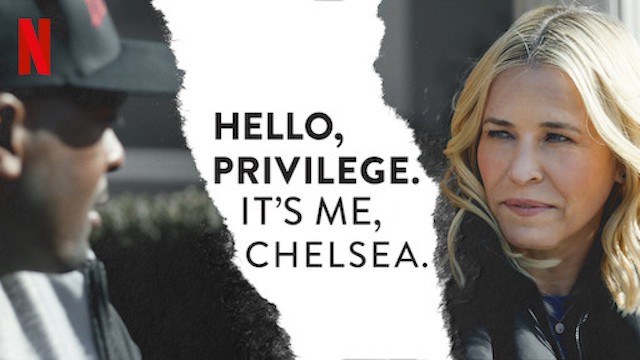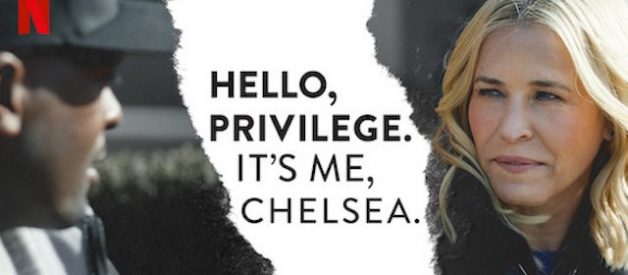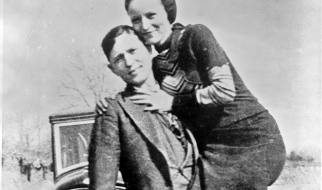
Tell us something we don?t know!
![]()
Ezinne Ukoha
Oct 3, 20197 min read
Minor spoilers
Chelsea Handler was paid way too much money for her latest offering from Netflix, Hello Privilege, It?s Me, Chelsea, when you consider how the controversial subject matter could?ve been better produced by someone who can actually attest to the harrowing ordeal that accompanies the victimhood of being assaulted by the lethality of Whiteness.
It made sense for the streaming giant to partner with Handler since she?s a known face in the illustrious spaces of comedy and variety shows. She?s also been loudly vocal about the genesis of her disrupted reality, which was orchestrated by the tragic election of Donald Trump in 2016.
But this jarring age of ceremonious confessionals has unfortunately bequeathed famous White people the audacity to safely share the truth of how their former naivety created the blissful existence, that lasted long enough to be shattered by the polarizing presence of an administration that openly operates on the premise of White supremacy.
It was only a matter of time before we would be faced with the task of watching a privileged White woman sleekly document her journey of repentance as she poses hardcore questions to her tribe, while dutifully listening to the Black people, who have to once again provide the answers only they can give.
The beginning of the 60-minute documentary starts off with impressive shots of the exterior and interior of Handler?s Los Angeles compound. This serves as the formal introduction to the typical existence of a Hollywood A-lister, who enjoys an upscale lifestyle that leaves little room for the exploration of issues that will never pose a threat to that status.
Viewers are set up to immediately fall in love with the White woman who despite having it all and more, selflessly embarks on the soulfulness of self-discovery by exchanging her comfort zone for the combative landscape of race wars, where she?s hit in the face with the evidence that proves why it was mandatory to get paid a shit load of money to expose what Black and Brown America treacherously navigate on a daily basis.
This is probably the explainer of why the film about White privilege, that?s supposed to elevate and capitalize on the hysteria around Trump?s presidency is basically the bittersweet treat that suits the palette of clueless White folks who can bask in the glow of the temperate depiction of their orneriness.
The shock value is sorely missing in this flat note of a film that takes us around the country to specific hotspots of communal activism with necessary peppering of the areas where rich White women who voted for Trump and will certainly do so again, regally reside.
One of the stops showcases an intimate gathering hosted by USC law professor Jody Armour, with the accompaniment of an open mic for those who are moved to express their thoughts. Of course Handler is given the opportunity to give reasons for her invasion in a place that?s dominated by young thinkers, who are not that interested in what she has to say.
Handler confirms why she?s making a documentary about White privilege and how the inspiration was borne from the need to atone for her reckless dismal of the powerful currency of Whiteness, that she assumed was normal until she was blessed with the riches that forced her to reckon with how ?something is f**king off here.?
?And so I don?t want to keep talking, because I?ve made a living out of talking, and I?m really eager to have a conversation about what it is I can know more about and to illuminate to people who are not of color what it means to be of color in this country.?
The cautiousness from the tough crowd of future philosophers was one of the bright lights of the film. The reception to Handler?s forthrightness about her goal to rehabilitate her uninformed tribe wasn?t met with applause, as one student echoed the frustrations of how these conservations never advance to the stage where White people are held accountable for their gross negligence.
But the scathing review that cut the deepest came from a young woman of color who was visibly bothered by Handler?s presence, and conveniently timed mission statement that?s coerced by the self-interest of a White woman who is ironically exacting her privilege in ways that center her narrative.
?What are you going to do with it other than come into this space and take??
I could?ve just stopped there and been very satisfied, but I followed the camera capturing Chelsea Handler trying to absorb the cold shower that had been levied on her attempts at a bonding session with a crowd of unapologetic truth-tellers.
She expectedly took the criticisms like a champ, by acknowledging how good it felt to be put in her place, which gives the impression that Handler is rarely ever forced into the role of being humbled. She also got the message about how her ambitious quest to conquer the disease of White privilege may not garner the standing ovation and stamp of approval from the population that suffers the deadly consequences.
?I also got the impression that black people are sick and tired of being asked questions about white people?s problems. We need to talk to people who are white and stop asking black people to solve our problems. Because it?s a white person?s problem.?
Handler presses on with more lessons about race, courtesy of a White American scholar, Tim Wise, who has authored books about racism, and is apparently knowledgable enough to thoroughly breakdown the principles of White privilege. Wise explains why White people prefer to downplay the societal bias that consistently works in their favor.
He recites a memorable quote that perfectly encapsulates the potency of Whiteness with the added measure of how and why the privileged section of America typically retain blinders as the defense mechanism that dilutes their guilt.
?The way I think people need to think about it, that we don?t, is understanding that privilege is just the flip-side of oppression or discrimination.?
Things take an unappetizing detour into the glitzy haven of Orange County, CA, where three White women with faces that move with the ease of snobbish reflexes are bluntly interviewed by Handler, who performs her best version of restrained repulsion.
The scene lasts way longer than it should, and the discussion about race never accomplishes much outside of re-affirming skeptical viewers of the scorn of White feminism, and how it manifests in the misleading narrative about how Black people are rewarded for being Black, with unearned entries to selective colleges as well as the revised hiring practices in the name of ?diversity.?
But things get nasty when one of the women haughtily demonstrates her impatience with time spent rehashing topics about people who don?t matter, especially when she?s privileged enough not to give a goddamn.
?Part of me thinks it?s time to move on and knock it off and quit talking about it.?
At this point, Handler is slightly losing control of the vehicle that?s no longer responding to her vital maneuvering for the purpose of arriving at the destination where all her efforts are validated.
The next stop is a trip down memory lane for the emotional reunion with the ex-boyfriend of her teenage years; a Black man who has aged well, considering the 14 long years in prison.
Back in the day, Tyshawn was a drug dealer, dating a White girl who wasn?t scarred by her association with a boyfriend who put her in situations that involved White cops who automatically assumed her innocence and repeatedly tried to save her from the grasp of a future felon.
The ex-lovers head over to Tyshawn?s family members, who are elated to catch up with the White girl who briefly lived with them and witnessed the hard times.
The conversation at the dinner table echoes the familiar bullet points of how young Black teens don?t stand a chance of surviving the systemic abuse that imprisons the vulnerable members of a community that law enforcement continues to terrorize.
As the documentary winds down, Handler spends the remaining minutes being schooled by activists from Black Lives Matter and White People For Black Lives.
The goal is to pick apart the meaty tissue of this never-ending epidemic with the last word that challenges White people to drop the load of White victimhood, and pick up the responsibility of actually being the dependable ally who doesn?t need to document those pursuits.
Here?s the thing, Hello Privilege, It?s Me, Chelsea, is definitely not for Black people and it certainly won?t sway the position of White people who don?t like Black people.
It serves as the portal for assuaging Handler?s fragile conscience. This enhances the urgency of logging in hours of labor by spreading the news about a virus, that is too out of control for a weak antidote, via the hour-long examination of why White folks can afford the privilege they faithfully wield.
Netflix needs to invest in Black media personalities who are more than capable of doing what a White celebrity can?t furnish when it comes to dissecting the deadliness of Whiteness in Trump?s America.
In the meantime, thanks for nothing, Chelsea!


